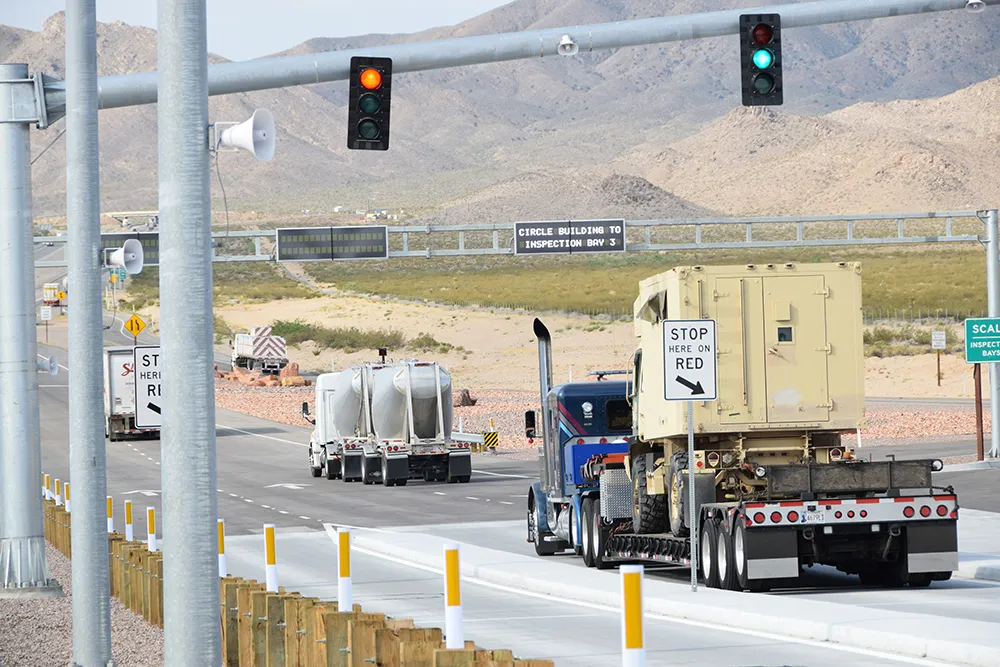The Expressway Authorities of Thailand (EXAT), which constructs, maintains, and manages the country's expressways and public transportation infrastructure, has placed a US$5.6 million order with Q-Free for delivery of tags. The order will be delivered between now and the end of the second quarter 2014.
“This significant order is further positioning Q-Free as a major supplier of products to the fast growing tolling market in Thailand. New road infrastructure creates demands for further tolling systems and
February 13, 2014
Read time: 2 mins
The Expressway Authorities of Thailand (EXAT), which constructs, maintains, and manages the country's expressways and public transportation infrastructure, has placed a US$5.6 million order with 108 Q-Free for delivery of tags. The order will be delivered between now and the end of the second quarter 2014.
“This significant order is further positioning Q-Free as a major supplier of products to the fast growing tolling market in Thailand. New road infrastructure creates demands for further tolling systems and hence strengthens the importance for Q-Free systems and products in Thailand”, says Q-Free CEO, Thomas Falck.
Despite lower revenues and order intake in quarter four of 2013, Q-Free sees a relatively healthy development for products and service and maintenance orders in the road user charging (RUC) market. However, project activity remains volatile and dependent on a limited number or projects associated with political risk, funding risk and uncertain timing. Q-Free will continue its efforts to build a new business line within advanced transportation management systems (ATMS), through organic growth and acquisitions.
The company saw continued demand growth for products and services and maintenance but lower revenues and order intake for projects in the fourth quarter. Revenues in the fourth quarter were US$24.5 million, with a negative operating profit (EBIT) of US$8 million, and a negative pre-tax result of US$7.8 million. Both revenues and costs were affected by termination of a contract in Australia. Adjusted for this, EBIT increased from the break-even level achieved in the fourth quarter 2012.
For the full year the company showed a marginal revenue increase to US$99 million, with a negative EBIT of US$15.5 million and a negative pre-tax profit of US16 million.
“This significant order is further positioning Q-Free as a major supplier of products to the fast growing tolling market in Thailand. New road infrastructure creates demands for further tolling systems and hence strengthens the importance for Q-Free systems and products in Thailand”, says Q-Free CEO, Thomas Falck.
Despite lower revenues and order intake in quarter four of 2013, Q-Free sees a relatively healthy development for products and service and maintenance orders in the road user charging (RUC) market. However, project activity remains volatile and dependent on a limited number or projects associated with political risk, funding risk and uncertain timing. Q-Free will continue its efforts to build a new business line within advanced transportation management systems (ATMS), through organic growth and acquisitions.
The company saw continued demand growth for products and services and maintenance but lower revenues and order intake for projects in the fourth quarter. Revenues in the fourth quarter were US$24.5 million, with a negative operating profit (EBIT) of US$8 million, and a negative pre-tax result of US$7.8 million. Both revenues and costs were affected by termination of a contract in Australia. Adjusted for this, EBIT increased from the break-even level achieved in the fourth quarter 2012.
For the full year the company showed a marginal revenue increase to US$99 million, with a negative EBIT of US$15.5 million and a negative pre-tax profit of US16 million.










